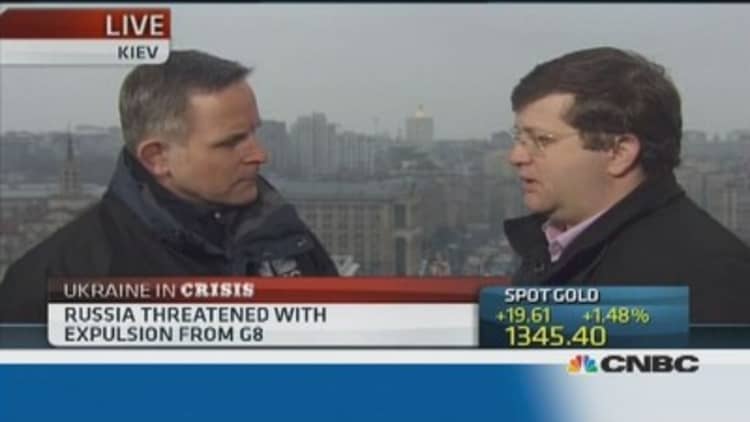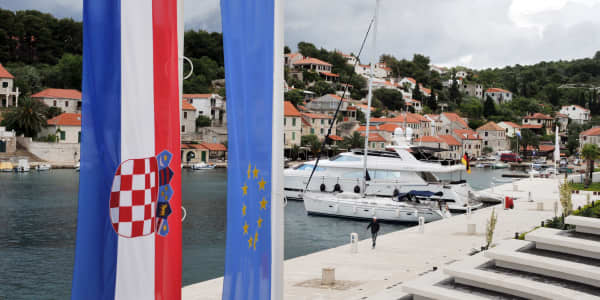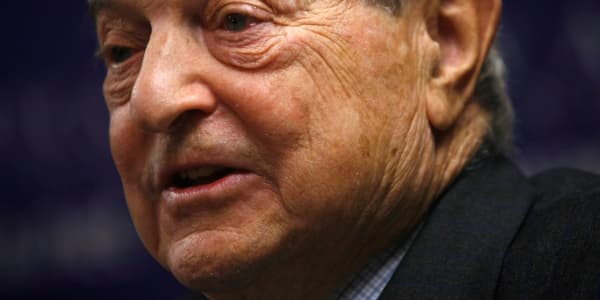Crimea may seem like a nondescript piece of land to squabble over – but its strategic significance has made it the battleground between Russia and the West before.
The peninsula, about the size of Maryland, juts out into the Black Sea -- the sea between Russia, Turkey and European Union states like Romania. While it is part of Ukraine, its eastern coast almost grazes Russia.
(Read more: Ukraine crisis: Latest news and market reaction)
Unsurprisingly for somewhere which is stuck in the middle of larger, more powerful and aggressive neighbors, it has changed hands and been fought over innumerable times, most famously during the Crimean War of the 1850s, which resulted in Russia's defeat by the U.K. and France. On Sunday, it seemed to have changed hands once more, with the U.S. conceding that Russia had military control of the region.
(Read more: Could Ukraine trigger a full-blown emerging markets crisis?)
The Crimean port of Sevastopol has been home to Russia's Black Sea Fleet for more than two centuries and is the cornerstone of Russia's defense in the event of aggression from Europe. The port's ties to Russia run deep, particularly for the majority of the population who are ethnic Russians. It was only officially made part of Ukraine in the 1950s, and has kept some autonomy, including its own parliament. Its economic and social ties with Russia are strong – one of its major sources of income is as a holiday destination for Russians.

Crimea was also a center of support for deposed Kremlin-backed President Yanukovych in the last Ukrainian elections.
(Read more: Global tensions over Ukraine 'highest since 9/11')
While around 59 percent of the population is ethnically Russian, according to the 2001 census, around a quarter identify themselves as ethnic Ukrainians. There is also a substantial minority of Crimean Tatars, Muslims who were deported en masse under Stalin, and have started returning to the region since the fall of Communism.
It is these Crimean Russians – and Russia's prized naval assets – that Russian President Vladimir Putin claims to be protecting by sending in Russian troops.
- By CNBC's Catherine Boyle. Twitter: @cboylecnbc.





